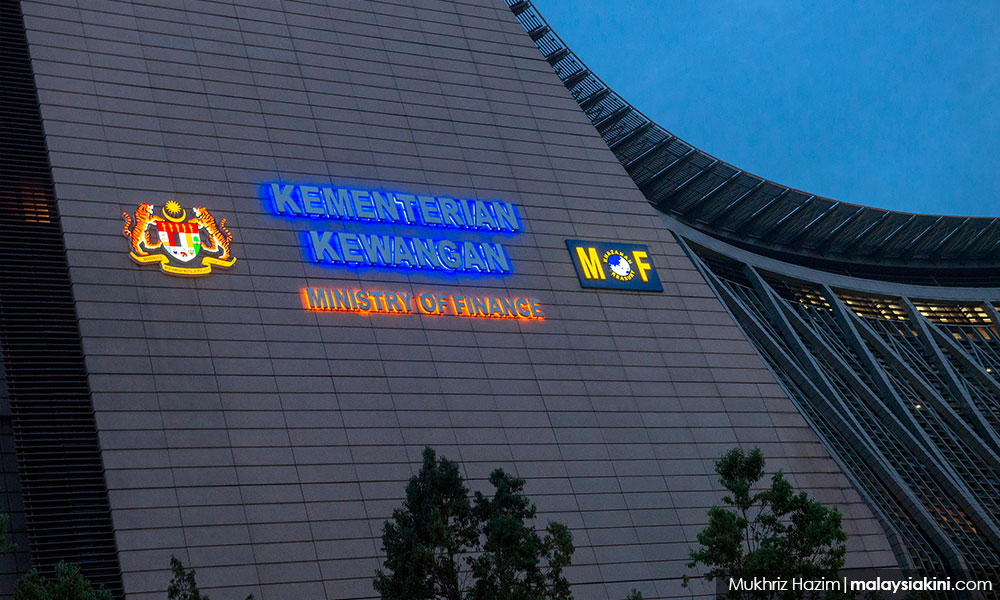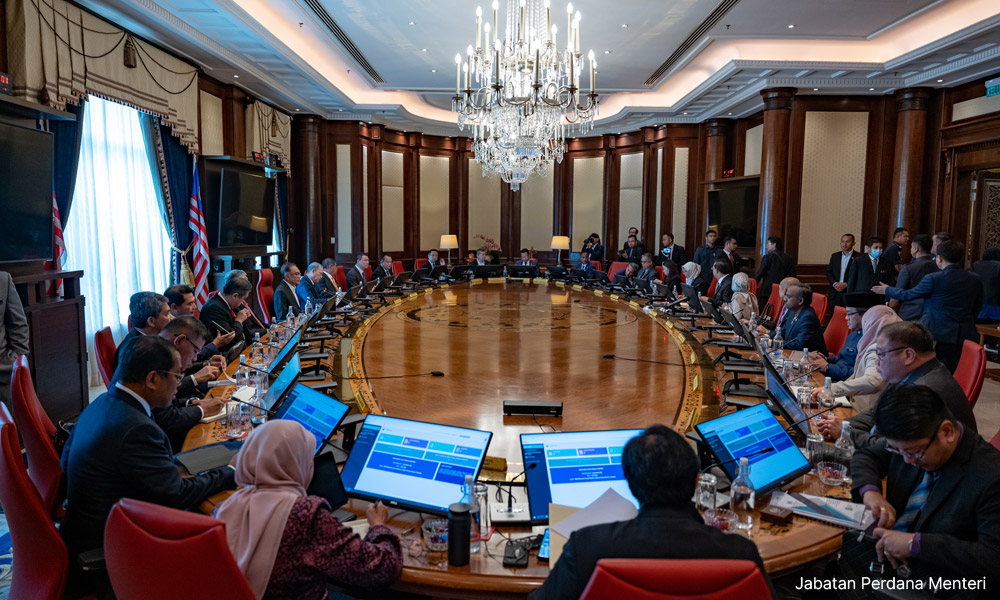For the majority of the last fifty years, Malaysian politicians have appeared oblivious to a basic understanding of public service. Nor have they embraced a vitally important societal value: that entering politics is not about making money, but is about serving the country and its people.
This is the important message Prime Minister Anwar Ibrahim is now sending loud and clear with a few bold statements and actions. It is about time too, if Malaysia is to have any chance of getting out of its current rut and fulfilling its undoubted potential.
In his maiden press conference as prime minister, he highlighted three focus areas of his administration: cultivating good governance, fighting corruption, and building a Malaysia for all Malaysians.
These may sound lofty, but they cut to the core of what Malaysia needs and what it has sorely missed for nearly half a century, despite which it has done rather well. These focus areas are underpinned by an acute diagnosis of the challenges facing our institutions today, which need urgent repair.
Poor governance engenders weak institutions that are either conveniently leveraged or susceptible to corruption and rent-seeking. These behaviours, when institutionalised, inevitably give rise to or reinforce administrative systems that are prone to bureaucratic capture and corruption, which then damage the economy and unfairly exploit or discriminate against different segments of the population.
The cure to this is simple enough: good, effective governance systems that are stridently independent, free of political interference and willing to be tough when needed without fear or favour. This goes beyond simply having an anti-corruption agency like the MACC.
Credit where credit is due: Anwar is already leading by example with his refusal to spend excessively for renovations to the Prime Minister’s Office and opting for a more cost-effective official vehicle, while also slashing ministerial appointments and salaries.
These are small steps in the right direction in a country plagued by ministers who believe that excessive perks are a right and spend lavishly. It is helping the public understand that these behaviours are the root cause of much of the nation’s ills and - most importantly – that change is possible.
These small steps should now be followed by structural and institutional reforms – especially those that help to address cost-of-living issues for the majority of Malaysians, which the PM has rightly said that he will focus on.
Malaysia’s consumer price index (CPI) soared by four percent compared to a year earlier in October, placing further financial stress on many following the impacts of the pandemic – nearly 60 percent of households feel that they are “not at all or only partially able” to cover their monthly basic needs, according to the World Bank.

Faced with continuing economic uncertainty, the government will need to dip into the nation’s financial reserves as short-term stopgap measures are taken before wider fiscal reforms can be introduced and have an impact.
The lesson learnt is that for the longer term, we must improve our preparedness for such crises, given that cost-of-living issues are also inextricably linked to the dynamics of a very turbulent and fickle global economy.
For such resilience, the nation’s coffers must be healthy and prudently managed, and this requires good governance of the highest order.
We cannot have the absolute free-for-all that resulted in 1MDB, the alleged misappropriation of RM600 billion in government funds during Muhyiddin's administration, missing warships and submarines, Sabah State Water Department corruption, 1BestariNet, the NFC Feedlot, and Perwaja Steel, just to name a few.
Failure to change course could worsen the current crisis, and plunge the nation into further instability and even long-term decline.
One way to ensure reserves continue to grow is to first plug the unimaginably large leakages occurring throughout the government’s procurement process, particularly when it comes to large projects and infrastructure development.
The PM has recognised this, which is why it is at the top of his agenda, as he recently unveiled. The goal is good governance, manifested, which is sorely needed in a system with a dearth of checks and balances: the revelation that a contract to install flood protection worth RM7 billion was directly awarded without tender is shocking, yet it would appear this is quite normal.
His plate is plenty full
As some have argued, it is true that the PM does not need further demands at this stage from arm-chair experts – his plate is plenty full as is.
But as a recently elected PM who is also the finance minister and one who enjoys tremendous public support and goodwill, he needs good ideas and strong public support to address the issues of widescale corruption arising from the way the government system appears to readily allow ministers and senior civil servants to award contracts to enrich themselves using the public purse.
There is no running away from the inconvenient truth that at the centre of this system of large-scale plundering of the nation’s wealth is the Finance Ministry. Now as the finance minister and the effective head of the Treasury, the PM has a golden opportunity to put in place administrative systems that can put an end to such vast leakages, similar to what any well-run government system would see as essential and normal.
Thus, the following are points for consideration to help the PM – and in his role as finance minister - as he works to undo the deep-rooted malpractices which have tormented and corrupted the nation.
The first step is to follow through on the administration’s promise to ensure all government contracts are openly tendered and none are awarded on the basis of political favour or patronage.
To avoid any conflict of interest, family members of ministers and top civil servants should be barred from bidding on government contracts that emanate from the minister in question.
In order to ensure there is regulatory oversight and compliance, the government should institute – if such an entity does not exist – a centralised and independent contract and procurement authority outside of any one ministry, which reports directly to the Finance Ministry and Parliament.

This body should be empowered to provide oversight on all matters pertaining to the following: means test of projects in terms of public needs, tender procedures, tender pre-qualification, and value for money evaluations, contract award protocols, monitoring of works and payment approvals as well as working with the MACC to improve the transparency of due processes.
To further discourage politicians and civil servants from exploiting loopholes in the tendering process, all racial criteria should be removed.
The use of Alibaba companies – where a business uses a Malay individual as a front to apply for bumiputera-only contracts – is an all-too-common occurrence in the public sector and a well-known rent-seeking mechanism that has allowed and even legitimised system leakages into the procurement and contract award process.
It has allowed ministers and officials to skirt around regulations, line their own pockets through the abuse of power, and the use of business proxies and robbed the public coffers of billions. This must stop.
It should be made absolutely clear to all levels of the civil service that corruption in any way or form will no longer be tolerated and legal processes initiated where civil servants have broken the law. Without stern action and examples, change will be slow and public attitudes will not change.
Government procurement aside, the current crop of political leaders should begin the wave of reform on a transparent footing.
While it is currently a voluntary norm in the country, asset declaration should be codified into law. Every member of Parliament, minister and senior civil servant should be compelled to declare their assets and sources of income as well as that of their spouses and family members.
While some have done so before the elections, many remain reluctant, which casts a veil of suspicion over them – what are they hiding? Appointments should be withheld if full disclosure is not forthcoming.
It should also be incumbent on the current administration – which is keen on reform – to halt the practice of permitting the hiring/appointment of family members as key political appointees, such as ministerial special officers and advisors, to ensure there is no hint of nepotism.
Family should be excluded from government machinery as it could not only lead to widespread nepotism but results in a lack of meritocracy in key positions as it excludes the best professionals, thus fostering an environment where incompetence and corrupt practices thrive.
A just, clean governance system is what all Malaysians deserve, irrespective of political leaning. The ramifications of good governance will send a message to the world that Malaysia is developing in the right direction and it will reassure citizens that public funds are being well managed.
It will allow the government to put in place the associated measures needed to address the cost of living issues so that these do not remain out of reach or inflict a great deal of pain on the majority because of state capture by a rent-seeking elite.
Breaking the grip of the rent-seeking era requires political capital, which the new PM has at his disposal – now, he can hopefully wield good governance with the support of the people to manifest the transformation Malaysia so desperately deserves. - Mkini
CHANDRAN NAIR is the founder and CEO of Global Institute for Tomorrow and the author of “Dismantling Global White Privilege: Equity for a Post-Western World”.
The views expressed here are those of the author/contributor and do not necessarily represent the views of MMKtT.




No comments:
Post a Comment
Note: Only a member of this blog may post a comment.